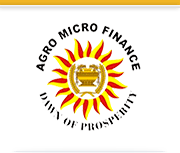 |
||||||||||||||||||||||||||||||||||||||||||||||||||||||||||||||||||||||||||||||||||||||
 |
||||||||||||||||||||||||||||||||||||||||||||||||||||||||||||||||||||||||||||||||||||||
|
Principles of LendingSince the funds available for disbursement by way of loans is limited, the personnel handling credit should possess;
The Principle of Liquidity will have to be kept in mind in disbursing funds and loans must only be granted to credit worthy persons i.e. those expected to honor their debts. The client must have sufficient funds for repayment of loans to fund new loans. The next principle to be followed is Principle of Public Interest. No loans should be granted that do not contribute to development and growth of the rural economy. Loans also should be in conformity with national/rural interest and do not conflict with the welfare or moralities of the rural area concerned eg. No loans should be granted to rear pigs in Muslim area. The officials disbursing funds must also be conscious of the Principle of Safety. They must ensure the safety of monies lent and be certain of repayment by assessing;
The necessity to look at women and the other marginalized poor for the process of development in Sri Lanka has only grown in recent years, and availability of credit for poor marginalized women is now a grave concern. However, attention to credit without a focus on women and the rural sector has had been a practice within Government and donor agencies historically. This is a critical element for development of small-scale enterprise in the third world. In Sri Lanka, women comprise more than half the population of 20 million people. They are, hence, a valuable resource potential, and yet they need to be meaningfully organized and recognized in the field of entrepreneurship and self-employment. Small enterprises are subject to numerous forces, which are effectively beyond their control - e.g. Demand in rural areas is determined by a series of factors extraneous to the product itself. The level and distribution of income, which in turn is closely related to the prices of agricultural products, and the distribution of land, determine it. Demand is also determined by cultural preference, value added to free imports, infrastructure, and marketing channels. Access to credit has been of grave concern to the rural poor. The formal banking sector has recognized the need to grant credit facilities to help meaningful economic development in the rural sector. Despite an impressive island-wide network of banks and credit institutions, they have so far not had a major impact in providing credit to the poor in the rural sector. The Central Bank and the commercial banks such as the Bank of Ceylon, People’s Bank, Hatton National Bank, Seylan Bank, Regional Rural Development Bank and Sampath Bank have special schemes to help the rural sector through granting of small and medium scale loans. However, banks as custodians of depositors’ funds, have had to conform to rules and regulations that have resulted in the limited access to rural people.
These restrictions have limited the flexibility of the banks to lend to the poor. Since the mainstream financial institutions have not been able to serve the micro enterprises for their credit needs, in most of the third world countries especially in Sri Lanka, NGOO have stepped into perform this task. Agromart Outreach Foundation was founded to create entrepreneurship among the marginalized poor, specifically women is one such organization. Starting in 1992, which was succeeded to Agro Micro Finance in 1999 and continued to date. |
|||||||||||||||||||||||||||||||||||||||||||||||||||||||||||||||||||||||||||||||||||||
| Copyright © 2007 Agro Micro Finance. All Rights Reserved. | Solution by NeoGenius | |||||||||||||||||||||||||||||||||||||||||||||||||||||||||||||||||||||||||||||||||||||


